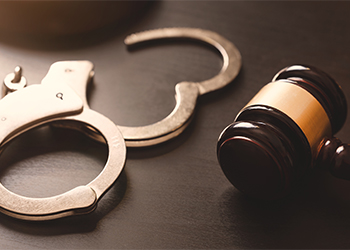What Types of Crimes Can Be Expunged from Your Record?
June 19, 2025
 Missouri law provides a path to expungement for certain crimes, which means a conviction no longer appears on a background check. Understanding what qualifies is the first step toward working with a criminal defense lawyer to get results. The Hardin Law Firm LLC is based in Missouri and focuses on criminal defense for clients seeking to clear past convictions.
Missouri law provides a path to expungement for certain crimes, which means a conviction no longer appears on a background check. Understanding what qualifies is the first step toward working with a criminal defense lawyer to get results. The Hardin Law Firm LLC is based in Missouri and focuses on criminal defense for clients seeking to clear past convictions.
Expungement isn’t automatic—it requires meeting requirements and following a defined process. Once your record is cleared, it’s as though the conviction never occurred for most practical purposes. By removing eligible offenses from public record, individuals can pursue new opportunities in employment, housing, and education without stigma.
As you read on, you’ll learn which offenses can be expunged and which cannot, as well as the steps and waiting periods involved when pursuing criminal defense options.
Eligibility for Expungement Under Missouri Law
Missouri law permits expungement of various convictions depending on the offense and the case outcome. An offense might qualify if you meet all court-ordered conditions and wait the required period. Common categories include:
Misdemeanor offenses: Simple misdemeanors—such as minor drug possession or first-time shoplifting—may be expunged once you satisfy sentencing conditions (e.g., probation, fines) and remain conviction-free for the required period.
Certain felony offenses: Nonviolent felonies might qualify if you weren’t sentenced to prison and you’ve completed probation or paid fines, then waited three years without further convictions.
Juvenile offenses: Crimes committed before age 18 are generally expungable once you reach adulthood and have finished any court-ordered probation or programs.
Acquittals and dismissals: If charges were dropped, you were found not guilty, or the case was dismissed, you can petition immediately—no waiting period is needed because there was no conviction.
Completed deferred judgments: Deferred judgments (where probation is completed in exchange for dismissal) can be expunged once the deferral period ends and the case is officially closed.
Most routine traffic violations don’t create a criminal record unless they escalate to a misdemeanor. If a traffic-related case did result in a misdemeanor conviction, you would follow the same expungement pathway as other misdemeanors. Consulting a criminal defense lawyer clarifies eligibility and helps you gather the right paperwork.
Crimes That Cannot Be Expunged
Some offenses are permanently excluded from expungement under Missouri law. Understanding these limitations will help you avoid wasting time applying for ineligible cases:
Violent felonies: Offenses involving serious bodily harm—such as armed robbery, aggravated assault, or homicide—cannot be expunged.
Sex offenses requiring registration: Convictions that mandate sex offender registration remain on record indefinitely.
Driving under the influence: DUI convictions, even first-time offenses, are not eligible for expungement in Missouri.
Certain drug trafficking crimes: Large-scale distribution convictions—especially those involving intent to distribute or manufacturing—are ineligible.
Stalking or harassment: Convictions involving credible threats or patterns of behavior that create fear for safety cannot be cleared.
If you believe your case might skirt these categories, a criminal defense lawyer can examine your file for narrow exceptions or alternative remedies, such as sealing rather than expunging certain records.
Expungement Process and Waiting Periods
To pursue expungement, start by obtaining certified court records to verify conviction dates, sentencing requirements, and any probation or parole conditions. Next, note the waiting periods:
Simple misdemeanors and dismissals: You can file immediately after completing sentencing requirements (e.g., probation, fines).
Nonviolent felonies: A three-year waiting period begins after you finish probation, parole, or pay all fines—provided you have no new convictions.
Deferred judgments: Once you successfully complete probation or diversion programs and the case is dismissed, you can file right away.
After meeting waiting periods, you file a formal petition in the county where the conviction occurred and include fingerprints, criminal history record surveys, and any required certificates. You then serve notice on the prosecutor’s office—and, in some situations, on victims or law enforcement agencies.
Those parties have a limited window to object. If no objections arise, a hearing is scheduled. Your criminal defense lawyer presents your case to the judge, and if the judge approves, your record is ordered sealed or destroyed.
Benefits of Expunging Your Criminal Record
Clearing eligible offenses offers tangible advantages. Once your record is sealed, background checks for employment rarely show the conviction, improving job prospects and reducing discrimination based on past mistakes. Landlords also often refuse applicants with visible criminal history; an expunged record helps you secure rentals or mortgages more easily.
Expungement can restore eligibility for educational grants and professional licenses that require a clean record. Personal peace of mind follows—knowing an old conviction no longer follows you can boost confidence and community involvement without stigma.
For many clients, expungement serves as a fresh start. Imagine being turned down repeatedly for jobs due to a misdemeanor from years ago: once that conviction is expunged, stable employment becomes achievable, improving finances and reducing recidivism risk. That change underscores why many seek criminal defense assistance to clear their records.
How a Criminal Defense Lawyer Can Help
Working with a criminal defense lawyer from The Hardin Law Firm LLC greatly improves your chances of successful expungement. Lawyers perform a detailed record analysis to confirm disqualifying factors, calculate waiting periods, and identify any outstanding requirements—such as unpaid fines or incomplete probation. They also handle document preparation, from obtaining certified dispositions to drafting and filing your petition accurately.
If the prosecutor or victim objects, a hearing may be necessary. Your attorney presents compelling arguments and evidence to show that expungement serves the public interest. In cases where a petition is initially denied, a lawyer can file an appeal, gather additional documentation, or address objections effectively.
Even after the court grants expungement, agencies sometimes delay or err when sealing records—an attorney follows up to confirm your record is fully sealed or destroyed.
Common Expungement Challenges
Even eligible cases may encounter hurdles. First, locating complete or accurate court records for older convictions can be difficult—especially if the county lost archives or closed a courthouse. Your lawyer may need to secure affidavits or search neighboring county records. Second, outstanding fines or restitution block your petition; Missouri courts require payment of all fines, court costs, and restitution before proceeding.
Multiple convictions present another complication: each offense often demands its own petition and waiting period. Courts rarely allow consolidated petitions for unrelated convictions. Any unpaid probation or parole obligations halt waiting periods—complete every requirement to become eligible.
Finally, prosecutors can object if they believe expungement conflicts with public interest, especially if a misdemeanor caused serious harm. Overcoming such objections highlights why experienced criminal defense representation is invaluable.
Next Steps and Timeline Expectations
If you’re ready to seek expungement, schedule a consultation with The Hardin Law Firm LLC. Your lawyer will evaluate your criminal history, gather all convictions, probation records, and related documents to map out eligibility. You’ll learn about waiting periods and any outstanding balances or conditions that must be satisfied before filing.
From the date you meet all requirements, expect at least several months before your petition is completed—waiting periods can be up to three years for nonviolent felonies, while misdemeanors may require only that you satisfy all sentence conditions.
• Evaluate your criminal history: Gather dispositions, probation records, and sentencing details.
• Explain waiting periods and fees: Confirm eligibility and identify required payments.
• Prepare and file your petition: Draft the petition, attach documents, and submit to the county court.
• Monitor objections and hearings: Address any objections and attend hearings as necessary.
• Confirm final clearance: Follow up with agencies to verify that your record is fully sealed.
Contact An Experienced Lawyer Today
The Hardin Law Firm LLC serves St. Louis, Missouri, and the surrounding areas. I’m here to review your record and help you file for expungement. Don’t let an old conviction hold you back—reach out today to schedule a consultation and start clearing your record.
